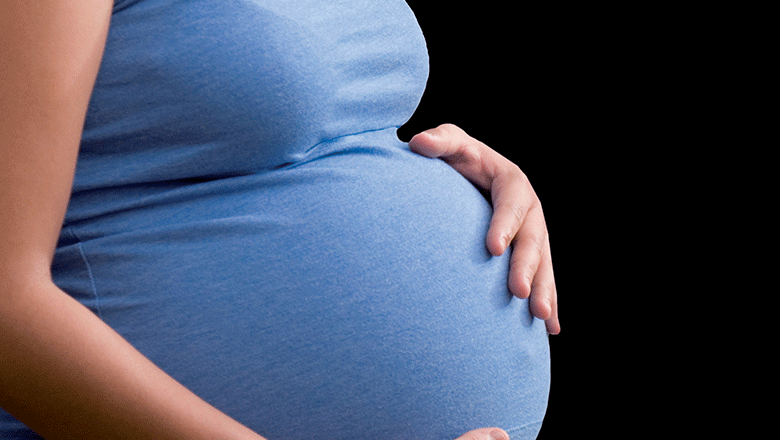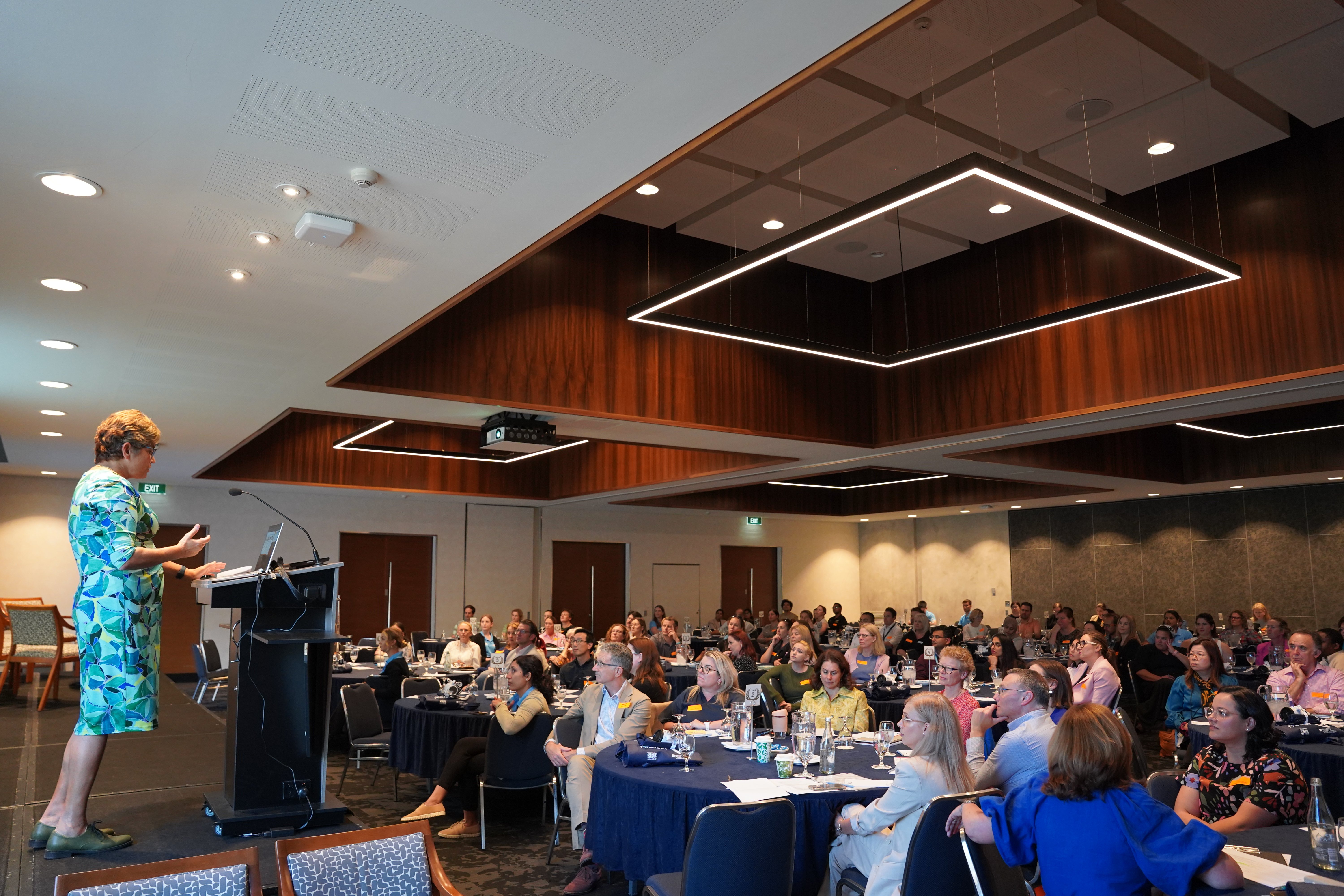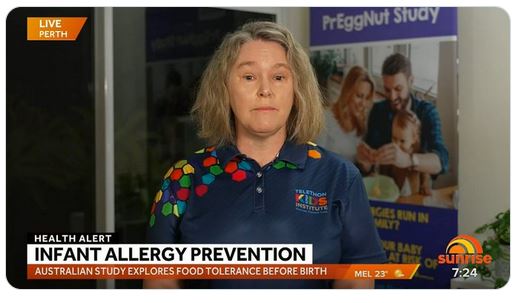Search
Showing results for "A"

News & Events
Maternal vaccination boosts battle against whooping coughThe Kids Research Institute Australia have welcomed the announcement by Health Minister Dr Kim Hames that whooping cough vaccination is to be provided free

News & Events
Vitamin D linked to healthy Fetal developmentThe important role of vitamin D in early development is the focus of research that has uncovered links between vitamin D levels and healthy growth of the baby d
News & Events
Celebrating 20 years of meningitis awarenessAustralian charity celebrates 20 years of providing meningitis awareness and marks World Meningitis Day with footy star

News & Events
The Power of Longitudinal Cohorts – The 2024 ORIGINS ShowcaseYesterday, we were delighted to host close to 200 people at The ORIGINS 2024 Showcase, which explored the power of longitudinal cohorts, now and in

News & Events
Changing advice for parents on food allergiesDr Debbie Palmer spoke to Ch7 Sunrise about the changing advice for parents about the development of food allergies in kids.

News & Events
Avid cyclist Theo Grant completes Everesting eventWA teenager Theo Grant has been living with type 1 diabetes since he was two-years-old, but the condition hasn't stopped him from setting big goals
Research
Childhood and Adolescence Gender Role Nonconformity and Gender and Sexuality Diversity in Young AdulthoodTo examine whether commonly used items measuring childhood conformity to gender roles are associated with sexual orientation in young adulthood.
Young people aged 11 years and older provided information on their suicidal ideation, suicide plans and suicide attempts.
Research
Modelling evolutionary pathways for commensalism and hypervirulence in neisseria meningitidisNeisseria meningitidis, the meningococcus, resides exclusively in humans and causes invasive meningococcal disease (IMD). The population of N. meningitidis is structured into stable clonal complexes by limited horizontal recombination in this naturally transformable species.
Research
Atypical nested 22q11.2 duplications are associated with neurodevelopmental phenotypes including autism spectrum disorder with incomplete penetranceOur findings contribute to the genotype–phenotype data for atypical nested 22q11.2 duplications, with implications for genetic counseling
